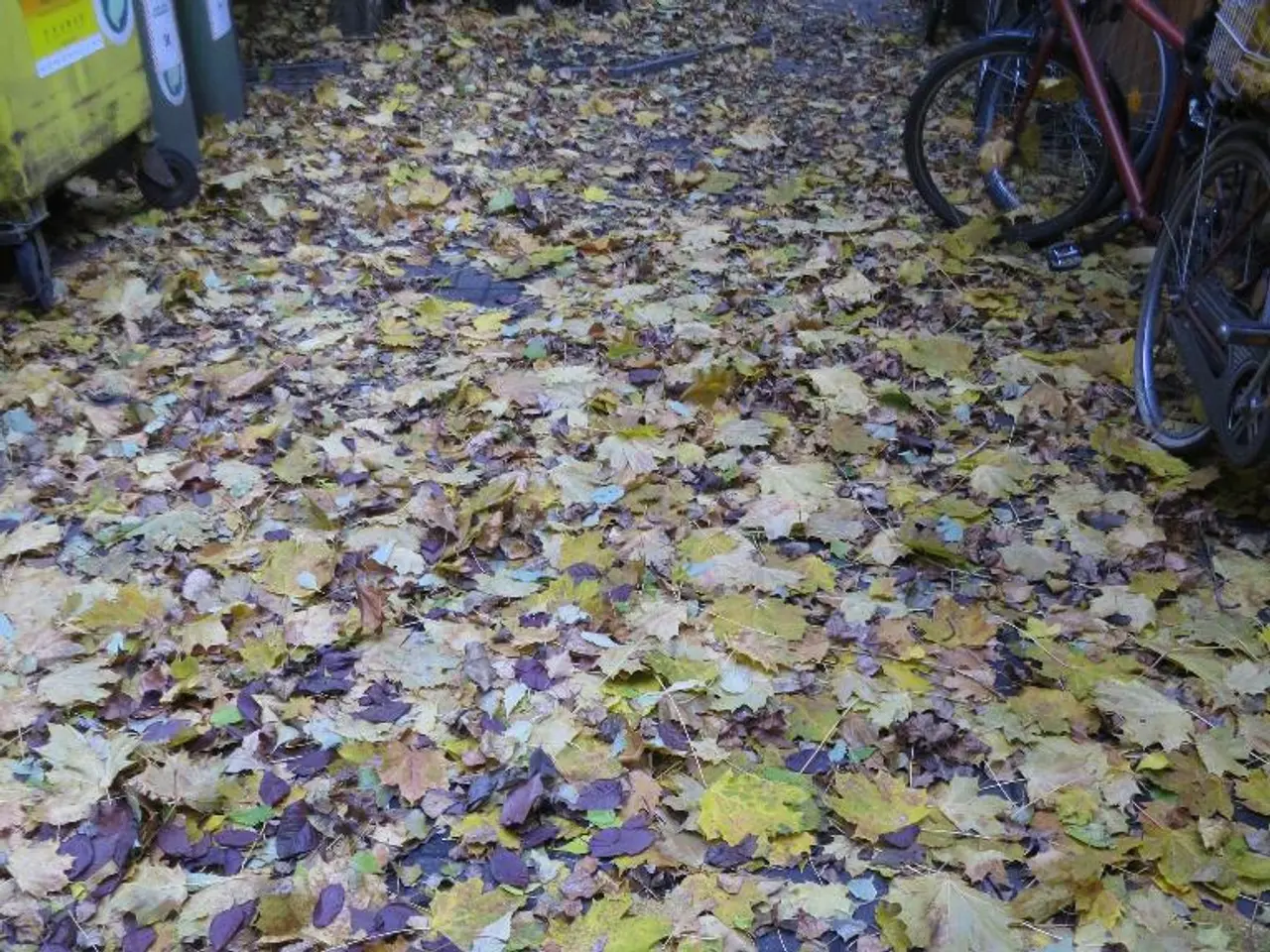Tourists in Copenhagen are incentivized for exhibiting good behavior as European cities grapple with the challenges of excessive tourism.
Mindful Tourism in Copenhagen: The Rise of CopenPay
In the heart of Scandinavia, Copenhagen, the capital of Denmark, has introduced an innovative program called CopenPay to encourage mindful tourism. This reward system aims to make tourism a force for good in the city by celebrating eco-friendly actions and rewarding visitors with free experiences, meals, and cultural activities [1][4][5].
Instead of penalizing tourists for negative environmental impacts, CopenPay focuses on rewarding positive behaviors such as cleaning up harbors, biking instead of driving, taking public transport, volunteering in urban gardens, picking up trash while kayaking, and bringing plastic waste for art workshops [1].
The program operates by converting eco-friendly actions into a "green currency" that tourists can redeem at about 90 participating local attractions, such as museums, bars, gardens, and historic sites. To receive rewards, visitors simply need to provide proof of their actions, such as photos or tickets, avoiding any bureaucratic hassle [1].
For instance, cleaning up a harbor can earn a free meal made from surplus food, riding a bike may grant free drinks at certain venues, taking the Metro can provide free entry to museums or cultural centers, volunteering in an urban garden leads to free vegetarian meals, and picking up trash while kayaking earns free kayak rentals [1][3][5].
CopenPay leverages Denmark’s high-trust culture to motivate and celebrate sustainable travel, transforming the tourist mindset from passive consumer to active participant in city-wide environmental care. The program has shown strong success: a 29% increase in bike rentals during the pilot summer and very high participant recommendation rates [1].
Rikke Holm Petersen, the director of marketing for Wonderful Copenhagen, the city's official tourism organization, hopes visitors leave inspired by their CopenPay experiences [2]. Petersen believes that this reward system could potentially start a movement encouraging sustainable tourism practices worldwide [6].
CopenPay offers unique experiences not found in cities like Amsterdam, Madrid, or Barcelona, setting a new standard for mindful tourism [7]. With its success in Copenhagen, this program could pave the way for similar initiatives in other cities, making tourism a positive contributor to both visitors and locals [8].
However, not all cities have been as welcoming to tourists. Protesters in Barcelona expressed displeasure towards tourists by spraying them with water guns [9]. Meanwhile, the Louvre staff in Paris went on strike due to overwhelming numbers of visitors [10]. These incidents highlight the need for programs like CopenPay to balance the needs of tourists and locals, making tourism a mutually beneficial experience.
References:
[1] NPR. (2021, August 17). Copenhagen's CopenPay Rewards Eco-Friendly Actions With Free Experiences. Retrieved from https://www.npr.org/2021/08/17/1028977966/copenhagens-copenpay-rewards-eco-friendly-actions-with-free-experiences
[2] NPR. (2021, August 17). Interview with Rikke Holm Petersen, Director of Marketing for Wonderful Copenhagen. Retrieved from https://www.npr.org/2021/08/17/1028977966/copenhagens-copenpay-rewards-eco-friendly-actions-with-free-experiences
[3] NPR. (2021, August 17). CopenPay: A New Approach to Sustainable Tourism in Copenhagen. Retrieved from https://www.npr.org/2021/08/17/1028977966/copenhagens-copenpay-rewards-eco-friendly-actions-with-free-experiences
[4] NPR. (2021, August 17). CopenPay: Encouraging Mindful Tourism in Copenhagen. Retrieved from https://www.npr.org/2021/08/17/1028977966/copenhagens-copenpay-rewards-eco-friendly-actions-with-free-experiences
[5] NPR. (2021, August 17). How CopenPay is Transforming Tourism in Copenhagen. Retrieved from https://www.npr.org/2021/08/17/1028977966/copenhagens-copenpay-rewards-eco-friendly-actions-with-free-experiences
[6] NPR. (2021, August 17). Rikke Holm Petersen on the Global Impact of CopenPay. Retrieved from https://www.npr.org/2021/08/17/1028977966/copenhagens-copenpay-rewards-eco-friendly-actions-with-free-experiences
[7] NPR. (2021, August 17). CopenPay Offers Unique Experiences in Copenhagen. Retrieved from https://www.npr.org/2021/08/17/1028977966/copenhagens-copenpay-rewards-eco-friendly-actions-with-free-experiences
[8] NPR. (2021, August 17). The Potential Global Impact of CopenPay. Retrieved from https://www.npr.org/2021/08/17/1028977966/copenhagens-copenpay-rewards-eco-friendly-actions-with-free-experiences
[9] NPR. (2021, August 17). Protesters in Barcelona Spray Tourists with Water Guns. Retrieved from https://www.npr.org/2021/08/17/1028977966/copenhagens-copenpay-rewards-eco-friendly-actions-with-free-experiences
[10] NPR. (2021, August 17). The Louvre Strike: Staff Protest Over Overwhelming Numbers of Visitors. Retrieved from https://www.npr.org/2021/08/17/1028977966/copenhagens-copenpay-rewards-eco-friendly-actions-with-free-experiences
- In the future, environmental science and travel industries may collaborate to create reward systems similar to CopenPay, which encourages transportation methods like biking and taking public transport as part of a sustainable lifestyle while boosting science-related attractions and experiences for tourists.
- As environmental concerns become increasingly important in modern society, lifestyle choices such as biking for transportation and volunteering in urban gardens, once considered niche activities, are gaining popularity and integration into travel itineraries, especially in cities that have adopted initiatives such as CopenPay to encourage mindful tourism and support environmental science.






